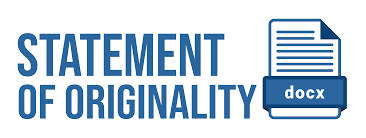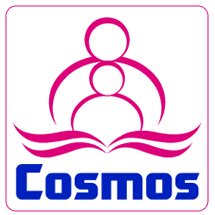E-LEARNING IMPLEMENTATION IN THE POST COVID-19 PANDEMIC: LECTURERS’ AND STUDENTS’ PERCEPTION
DOI:
https://doi.org/10.32520/eji.v7i1.2281Keywords:
E-Learning, Google Classroom, Post Covid-19 Pandemic, PerceptionAbstract
Many universities have integrated technology through the utilization of Learning Management System (LMS) into the process of teaching and learning especially in the post Covid-19 Pandemic. Google Classroom is one of the platforms used by the lecturers and students. The purpose of this study is to determine the lecturers' and students’ perception of the implementation of online learning using Google Classroom in the Post Covid-19 pandemic. The subjects of the research were the lecturers and students of English Education Program of University of Indragiri. There were 15 lecturers and 62 students involved in this study. They were selected using the purposive sampling technique. The researcher collected the data through questionnaires adapted from Harjanto (2019) and Afriani (2021) and then the data were classified based on the indicators. Descriptive quantitative design was applied in this study. In general, the results revealed that the lecturers and students had positive perception in using Google Classroom in post Covid Pandemic.
References
Agusmanto Hutauruk. (2020). Kendala Pembelajaran Daring Selama MasaPandemi di Kalangan Mahasiswa Pendidikan Matematika: Kajian Kualiatatif Deskriptif. SEPREN: Journal of Mathematics Education and Applied Vol. 02, No.01, 45-51
Beuning, P.J., Besson, D.Z., & Snyder, S.A. (2014). Teach Better, Save Time, and Have More Fun: A Guide to Teaching and Mentoring in Science. Arizona: Research Corporation for Science Advancement.
Azhar, K.A. (2018). Effectiveness of Google Classroom: Teachers’ perception.Prizren Social Science Journal, vol.2, no. 2, pp. 52-66.
Febrianti, Ima. (2021). Implementasi Penggunaan Google Classsroom Pada Pembelajaran Daring Masa Pandemi Covid-19 Di Kelas VI Sekolah Dasar. Skripsi. Program Studi Pendidikan Guru Sekolah Dasar Jurusan Pendidikan Anak Usia Dini dan Dasar Fakultas Keguruan Dan Ilmu Pendidikan Universitas Jambi.
Harjanto and Sumarni. (2019). Teachers’ Experiences on The Use of GoogleClassroom. 3rd English Language and Literature International Conference (ELLiC) Proceedings – (ELLiC Proceedings Vol. 3, 2019)
Hausammann, P.B. (2017). Beginning Google Classroom and the Paperless Classroom. Retrieved from https://www.fetc.org/materials/W01 3.pdf
Hikmatiar, A., Sulisworo, D., dan Wahyuni, M. (2020). Pemanfaatan Learning Management System Berbasis Google Classroom dalam Pembelajaran.Jurnal Pendidikan Fisika, 8(1), 1-9.
Iftakhar, S. (2016). Google Classroom: What works and how?. Journal of Education and Social Sciences. Vol.3, pp. 12-18.
Irawan, A.G, Gunawan, K.D.H. (2022). The Lecturers’ Perception of The Implementation of ICT For Conducting Online Learning During Covid-19 Pandemic. EJI (English Journal of Indragiri): Studies in Education, Literature, and Linguistics. Vol. 6. No. 2, July 2022
Irwan, D. (2021). Online Learning Implementation; Case In A Rural Senior High School In West Kalimantan Province. Journal of Teaching and Education, 3(2), 280–293.
Keeler, A. & Miller, L. (2016). 50 you can do with Google Classroom. San Diego California: Dave Burgess Consulting Inc.
Littlejohn, A., & Pegler, C. (2007). Preparing for Blended E-Learning. Routledge.
Mafa, K.R. (2018). Capabilities of Google Classroom as a teaching and learning tool in higher education. International Journal of Science Technology & Engineering, vol. 5, no. 5, pp. 30-34.
Mizzel, H. (2010). Why professional development matters. Oxford: Learning Forward.
Rahmah, D. N., Graselly, Arifin, K.A., Destri, N, S. (2021). Students’ Perceptions of Using Google Classroom in The Process of Learning English. Indonesian Journal of Research and Educational Review. Volume 1, No. 1, 2021, pp 37- 45
Yurniwati, Y., & Utomo, E. (2020). Problem-based learning flipped classroom design for developing higher-order thinking skills during the COVID-19 pandemic in geometry domain. Journal of Physics: Conference Series, 1663(1). https://doi.org/10.1088/1742-6596/1663/1/012057




















